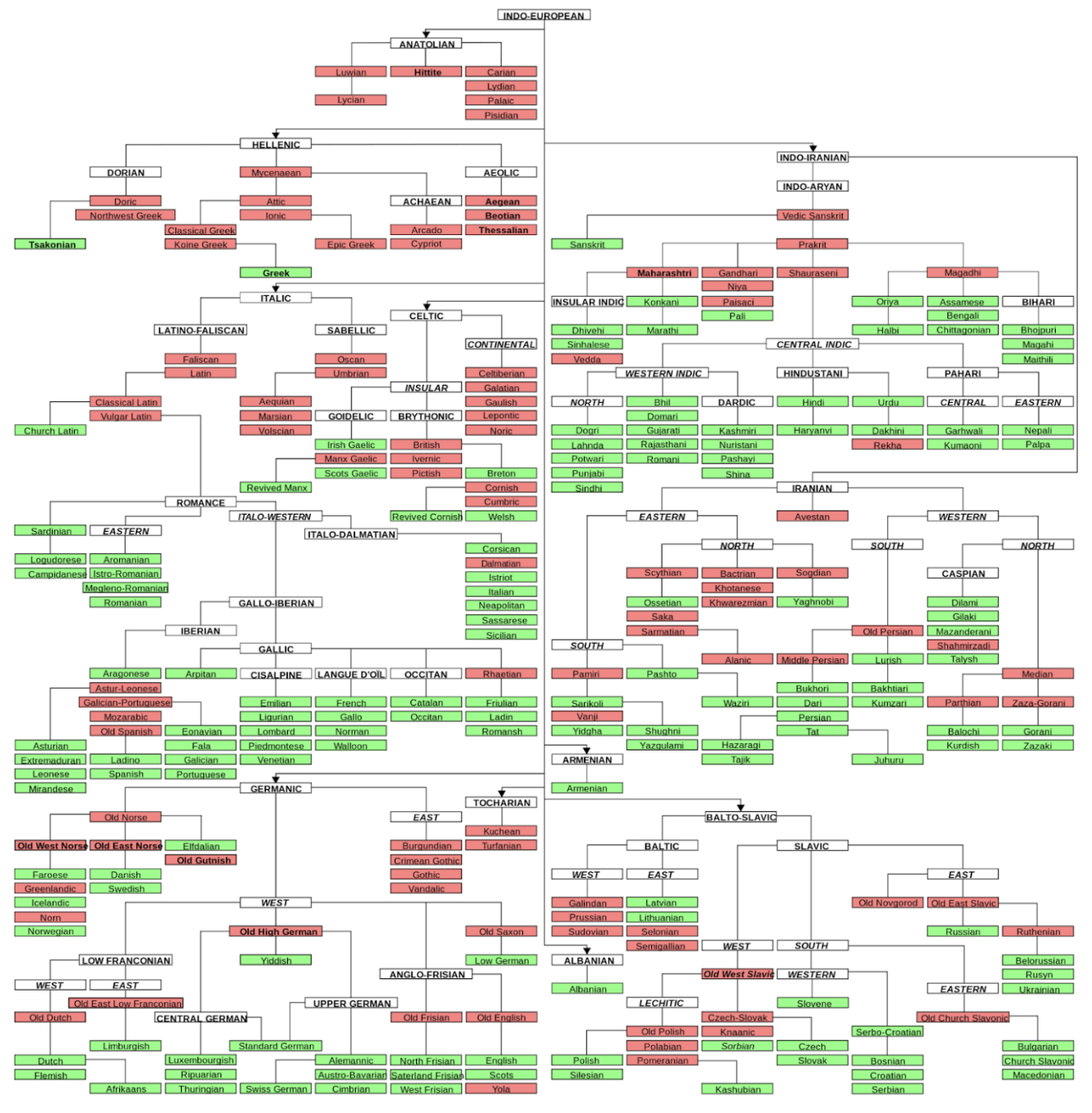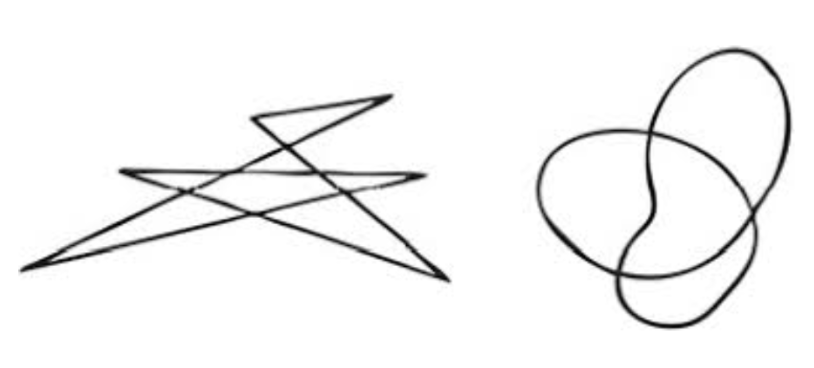- Published on
⭐What does your language say about you?
- Authors

- Name
- Anirudh Sathiya
[ Readtime: <5m ]
Have you ever wondered why the word for Mother in your language sounds similar to the English word?
(Well that was an educated guess, I figured most of my viewers would be speaking one of the following languages - English, French, Italian, German, Irish Gaelic, Swedish, Russian, Persian, Hindi, Greek, Tamil, Kannada, Tibetan etc. )

The reason why is due to a phenomenon called cognates ; language isn’t just a medium of communication it’s a complex system that has evolved from shared roots. Thus, we can use language as a tool to get clues about economic and cultural changes, and learn how human psychology has evolved over time.
It’s so beautiful to me that something so tangential, like agriculture for instance, can have such a massive effect on a particular language. And perhaps remarkably, deciding which language to speak has a long term effect on our minds too.
Part 1: How Humans Affect Languages
It turns out “Mother” isn’t the only common word between some languages.
Here are some other fun examples -
New – Sanskrit nava (नव), Latin novus, Greek neos, English new, German neu, Russian новый (novyy)
Door – Sanskrit dvara (द्वार), Latin foris, Greek thyra, English door, German Tür, Russian дверь (dver’)
Three – Sanskrit trí (त्रि), Latin tres, Greek treis, English three, German drei, Russian три (tri)
Heart – Sanskrit hṛdaya (हृदय), Latin cor, Greek kardia, English heart, German Herz, Russian сердце (serdtse)

As you might have guessed, this commonality is attributed to shared ancestry among speakers of these languages. If you speak any of these languages, your origins trace back to the Bronze Age, around 5,000 years ago, near modern-day Ukraine. It is believed that around this time, horses were first domesticated, along with cattle and sheep. Coupled with bronze and copper making its way into weaponry and transport systems led to times with mass migration and conquest.
Alright enough history, how does linguistics have a play in this?
Culture plays a vital role in understanding how these languages evolved. Just like Newton’s first law of Inertia, linguists hypothesize that languages do not change randomly—they evolve in systematic ways that perpetuate with time. By understanding sound shifts, we can reverse-engineer older languages. Linguists identify so called cognates, which are words that have a common origin but evolved differently in separate languages.
Just like the “Mother" example, different languages are linked together into a family tree called the PIE (Proto-Indo-European) language tree. What’s absolutely mindblowing is using this technique, we now know what old languages sounded like - even when there’s not a single piece of evidence of the language existing. Wow. Try finding your language in the PIE chart below. (which is really not a pie chart)
BTW, deciphering languages is still a largely unsolved problem, and if you think you can help there’s a 1.5 Million dollar cash prize. https://scrollprize.org/ (Might help to add that last year’s winners were a group of computer science students )


Part 2: How Languages affect Humans
I’m endlessly fascinated by how using a language is like a two way street - we shape it and it shapes us. Let me explain by asking you a question (I first saw this on National Geographic’s Brain Games)

One of these shapes is named Maluma and the other is named Takete. Can you guess which one is which?
If you chose maluma to be the blob-like shape on the right, you’re amongst 95% of the population who picked the same option. (and me too). It even works with people speaking vastly different languages.
But why? In my opinion, it just reinforces the fact that language isn’t arbitrary and phonetic sounds are hard-wired into our brains to shape the way we think.
It's fascinating that this concept extends to other human senses like vision. In a study, different groups of people were asked to differentiate between colors in a blue-green spectrum. Speakers of languages which don’t have a different word for blue and green found it harder to tell apart these colors.
Psst, its just a few shapes. So what?
A Yale study by Professor Keith Chen found that speakers of languages like German, that do not rely on the future tense, make more future-oriented choices like having better money habits or living a healthier lifestyle.
* Profusely Sweating * So… what about English? What does that make me??
I don’t have the linguistic know-how to benchmark English, neither can I tell if a rank is even possible.
But I do like the fact that English doesn’t gender its nouns. Unlike languages such as Hindi, Spanish, French, or German, where every noun is assigned a grammatical gender, English treats most nouns as gender-neutral.
In Hindi, the gender of nouns is decided subjectively by the culture. Often times objects that are big, powerful, or bold are usually masculine, and objects that are beautiful and elegant perhaps might be treated as feminine.
कंघी मेरे भाई की है।
This comb (feminine) belongs to my brother.
हाथी जंगल में घूमता है।
The elephant (masculine) roams around in the jungle.
Because of this, speakers of said language usually have an implicit gender bias about different nouns and adjectives.
Even though nouns in English aren’t grammatically gendered, some words can reveal biases. For example, positions such as congressman, chairman, businessman imply that these jobs are inherently masculine. Just like how there is no male equivalent for “spinster” that carries a negative connotation. Nowadays, the same kind of language and written media is also used to train generative AI, which further perpetuates stereotypes. It’s and chicken and egg game- Humans create language with inherent “flaws”. Language creates unfair social perceptions in humans.
Thus, in a world where politics is divisive and diversity is under attack, we must acknowledge how our culture can affect our perception, and use the power of language to foster unity.
Sources:
- https://www.sciencedaily.com/releases/2024/07/240724123040.htm
- https://en.wikipedia.org/wiki/Proto-Indo-European_language
- https://www.bbc.com/future/article/20210408-the-sexist-words-that-are-harmful-to-women
- https://insights.som.yale.edu/insights/the-language-we-speak-predicts-saving-and-health-behavior#:~:text=Languages%20differ%20in%20how%20much,more%20wealth%2C%20and%20smoking%20less
- https://en.wikipedia.org/wiki/Bouba/kiki_effect
- https://www.youtube.com/watch?v=CGM3wwioVmo&t=212s&ab_channel=IndiainPixelsbyAshris
- https://en.wikipedia.org/wiki/Cognate
- https://starkeycomics.com/2019/11/01/indo-european-words-for-two/
- https://www.worldhistory.org/image/1028/indo-european-language-family-tree/